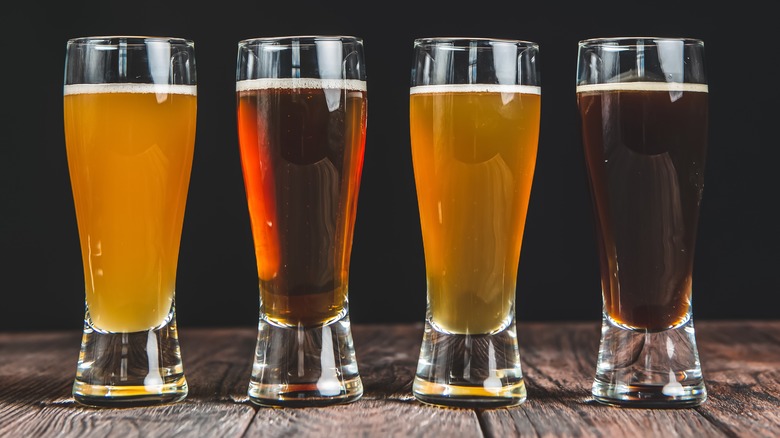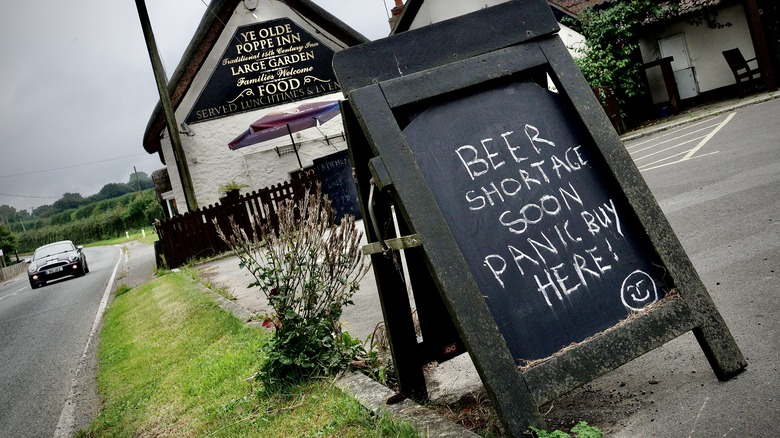Why An Extinct Volcano Could Seriously Limit Beer In The US
What does an extinct volcano have to do with the beer business? Turns out, more than you'd think. Those delightful bubbles in your beer are there because beer is usually carbonated. According to Mammoth Beer, this means that carbon dioxide gas is added to beer before the can or bottle is sealed. Brewers usually purchase carbon dioxide gas. Given all the concern over carbon emissions and climate change, there's a shortage of the carbon dioxide that's used in food production, impacting many parts of the industry, including beer production (per The Wall Street Journal).
According to gasworld, the carbon dioxide that the food and beer industries rely on is produced in several ways. Chief among them is as a byproduct of the production of ammonia and bioethanol. Ammonia production typically fluctuates over the course of a year, as it's an important ingredient in many fertilizers, and there's currently a backlog at ammonia plants with as much as a 60-day turnaround. That means there's less carbon dioxide to go around. Okay ... so there's a carbon dioxide shortage, but what about that volcano? How does an extinct volcano affect beer production?
There's an extinct volcano that's a big source of carbon dioxide
According to the Vicksburg Daily News, far below the town of Jackson, Mississippi — about 2,900 feet below the Mississippi Coliseum — there's an extinct volcano. The oldest known volcanic structure in the U.S., the Jackson Volcano, also called the Jackson Dome, last erupted about 66 million years ago. And the reason it matters to the beer biz is that the Jackson Dome contains an enormous reservoir of carbon dioxide.
The Jackson Dome's reservoir of carbon dioxide has been contaminated by benzene and other hydrocarbons which aren't safe for human consumption, according to gasworld. Even the filters used to purify carbon dioxide for food and beverage purposes can't remove these impurities, which exacerbates the existing carbon dioxide shortage. According to Axios, brewers are feeling the effects in a big way. Some are exploring ways to switch from using carbon dioxide to using nitrogen in their production, while others are simply paying three to four times as much for carbon dioxide. Boston area-based Nightshift Brewery even closed one of its facilities because the company was told that its carbon dioxide supply would be limited perhaps for more than a year. Given the carbon dioxide shortage, this might be the perfect time to start exploring cask-conditioned beer that's naturally carbonated.

